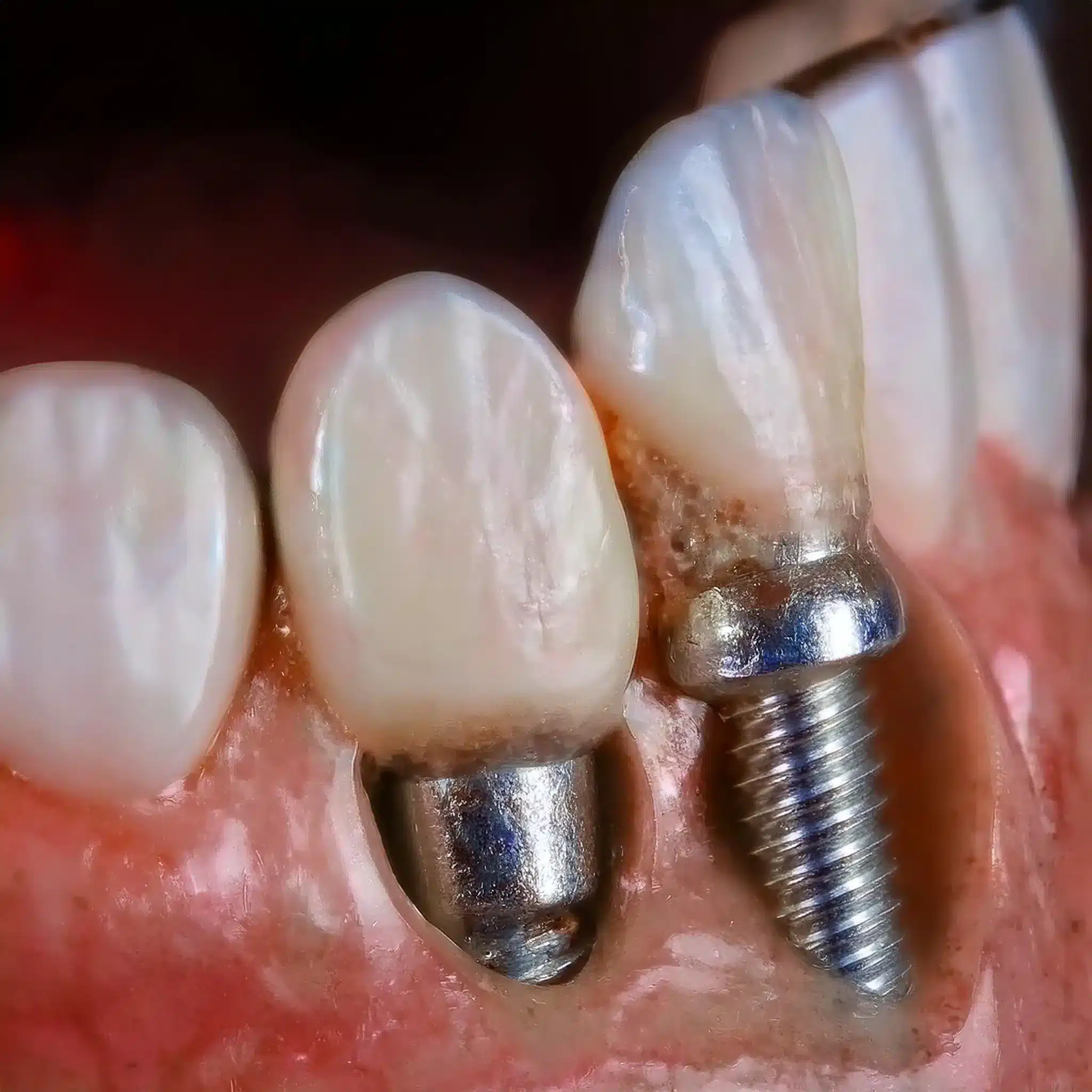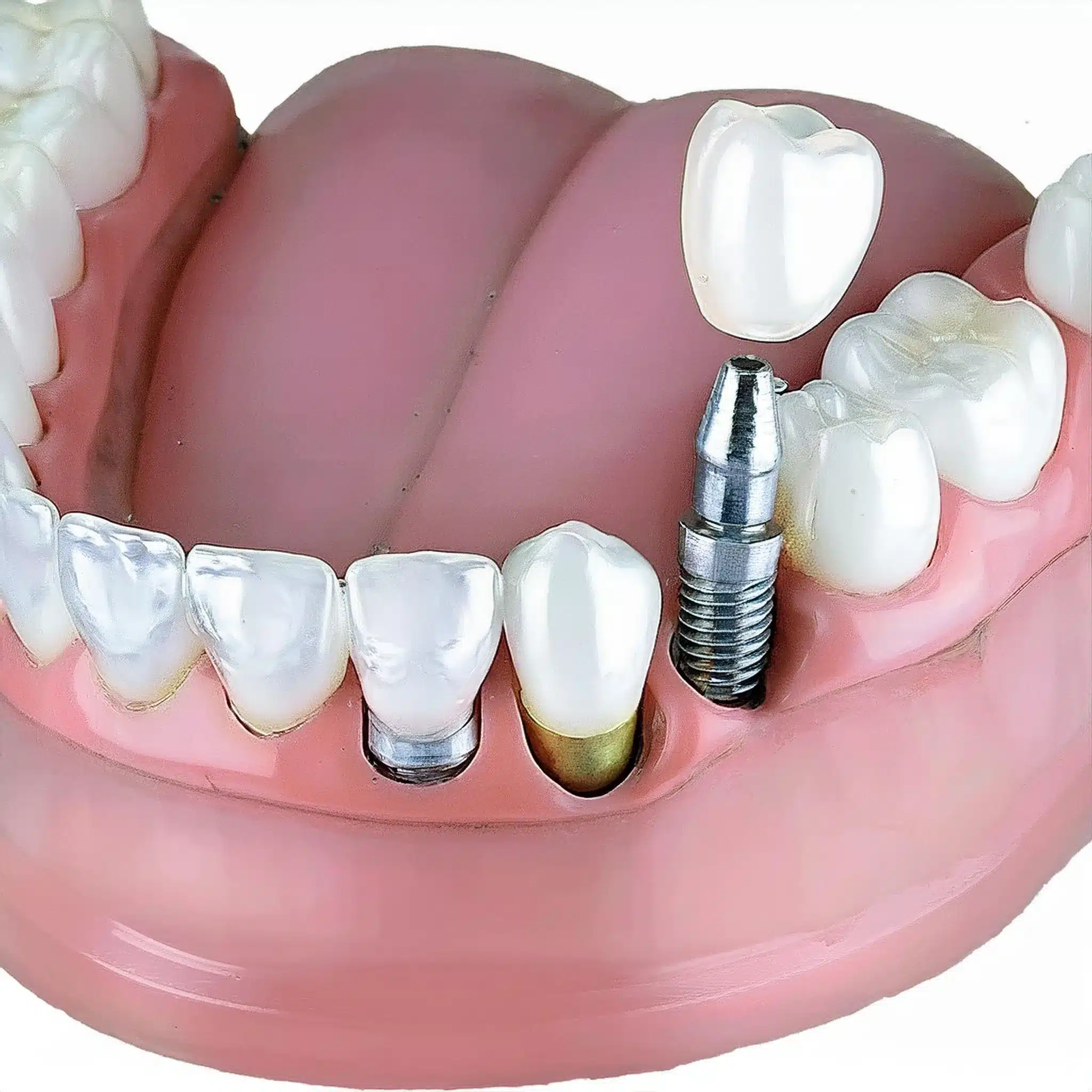Dental implant risks and complications are a big worry for many patients considering this popular solution for missing teeth.
Knowing these risks will help you make informed decisions and reduce complications.
What are the Risks and Complications of Dental Implants?
Dental implants have risks of infection, nerve damage, and implant failure.According to recent studies, the overall complication rate is 13.9%, and inflammatory complications are the most common at 10.2%. Key risks are:
Infection: poor oral hygiene or surgical technique.
Nerve Damage: Improper implant placement.
Implant Failure: Inadequate bone or smoking.
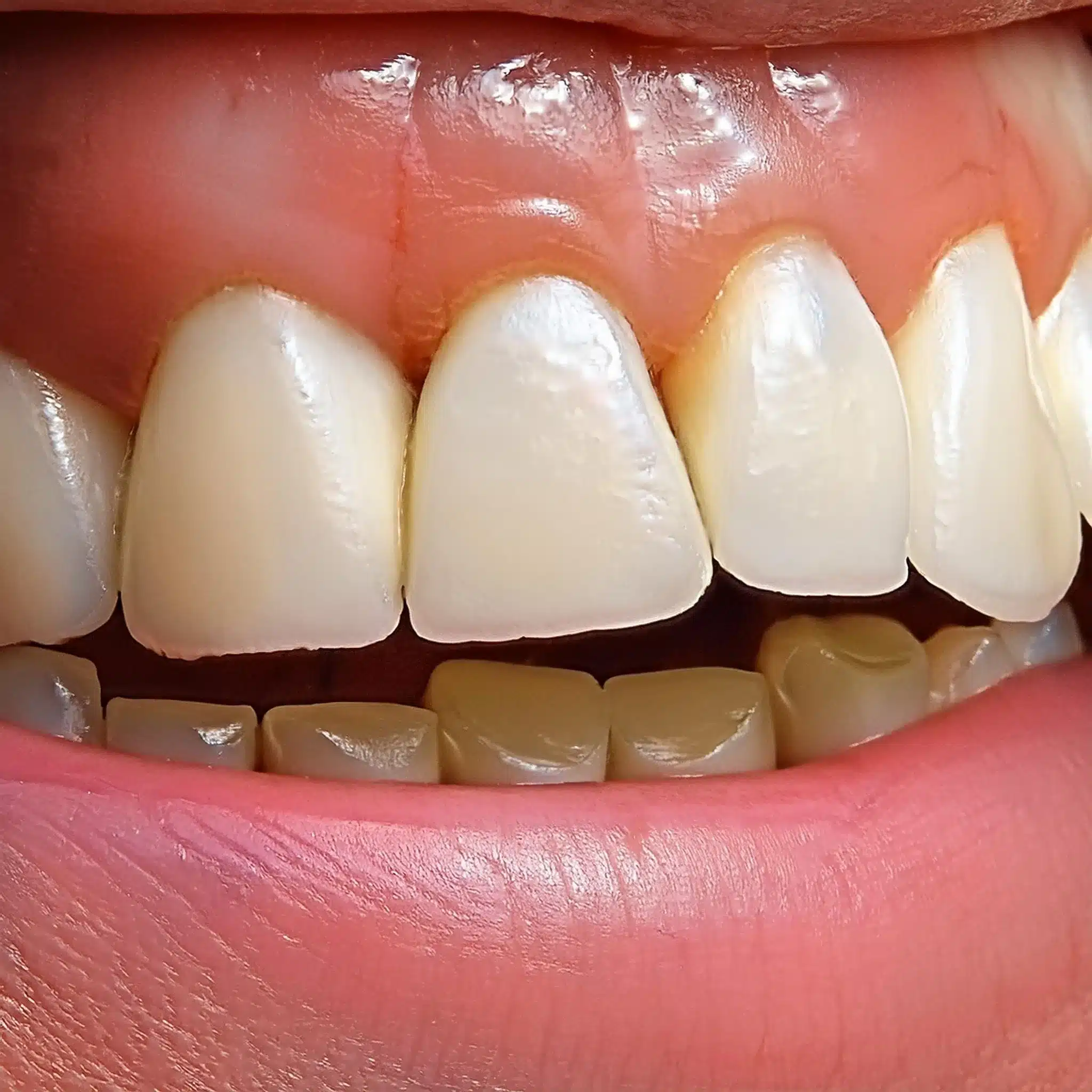
Risks Associated with Dental Implants
Dental implants have pros and cons but come with risks patients should know.
Knowing these risks will help you make informed decisions and get good results.
Infection at the Implant Site
Infections are a common complication, often due to poor oral hygiene or surgical technique.
Research shows inflammatory complications occur in 10.2% of cases (5).
These infections can be uncomfortable and may require antibiotics or surgical intervention to resolve.
Nerve Damage
Nerve damage is another risk, often due to improper implant placement.
This can cause numbness, tingling, or pain in the area. Although less common, nerve damage can affect a patient’s quality of life and may require corrective surgery (4).
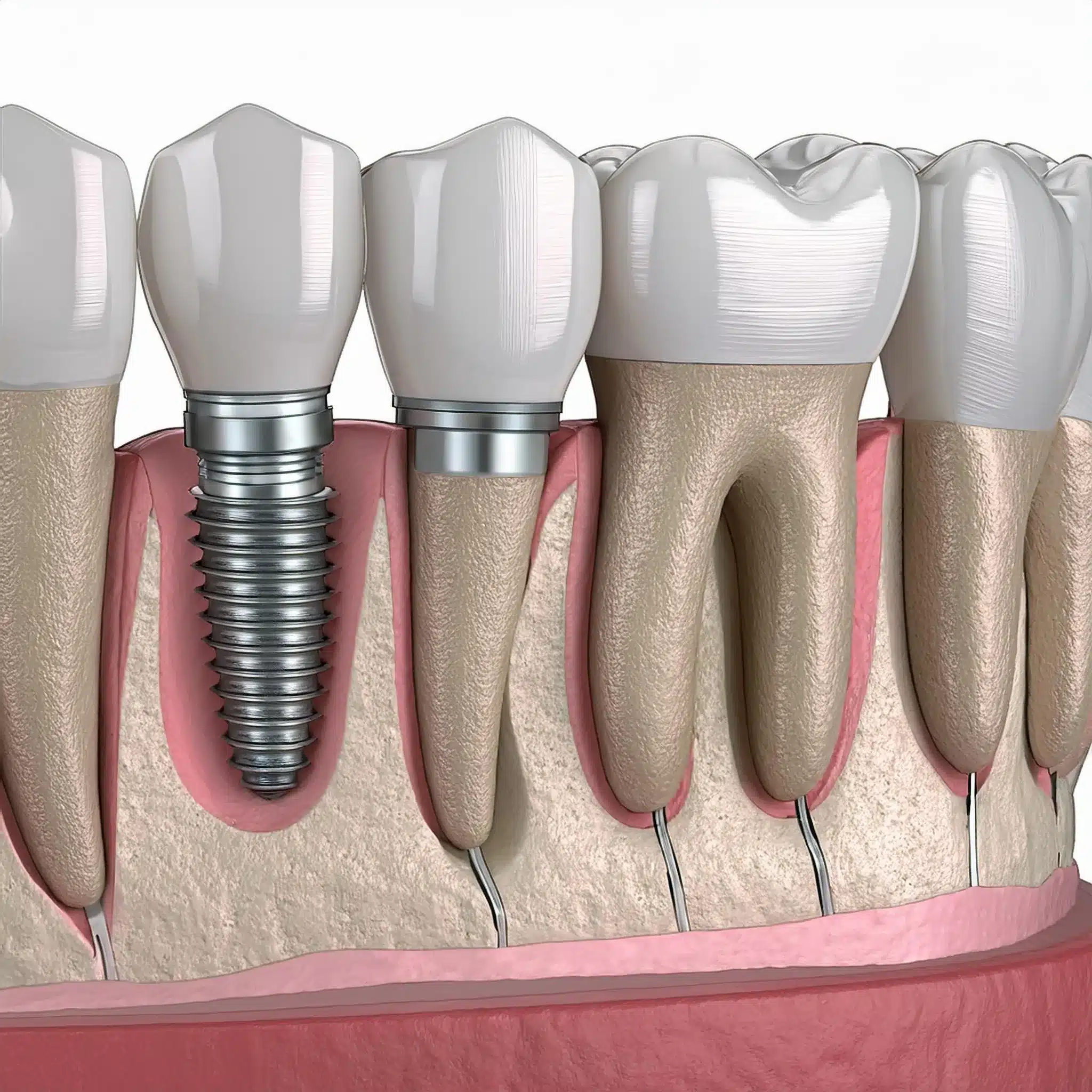
Sinus Problems
For implants in the upper jaw, there is a risk of sinus problems.
If the implant goes into the sinus cavity, it can cause sinusitis or other complications.
Proper pre-surgical planning and imaging will help minimise this risk by ensuring the implant is placed correctly (5).
Dental Implant Failure or Rejection
Implant failure or rejection can occur for many reasons, including inadequate bone or smoking.
The overall complication rate for dental implants is 13.9%, and implant rejection is a big one (5).
The patient’s health, bone quality, and surgical technique can all affect the likelihood of implant failure.
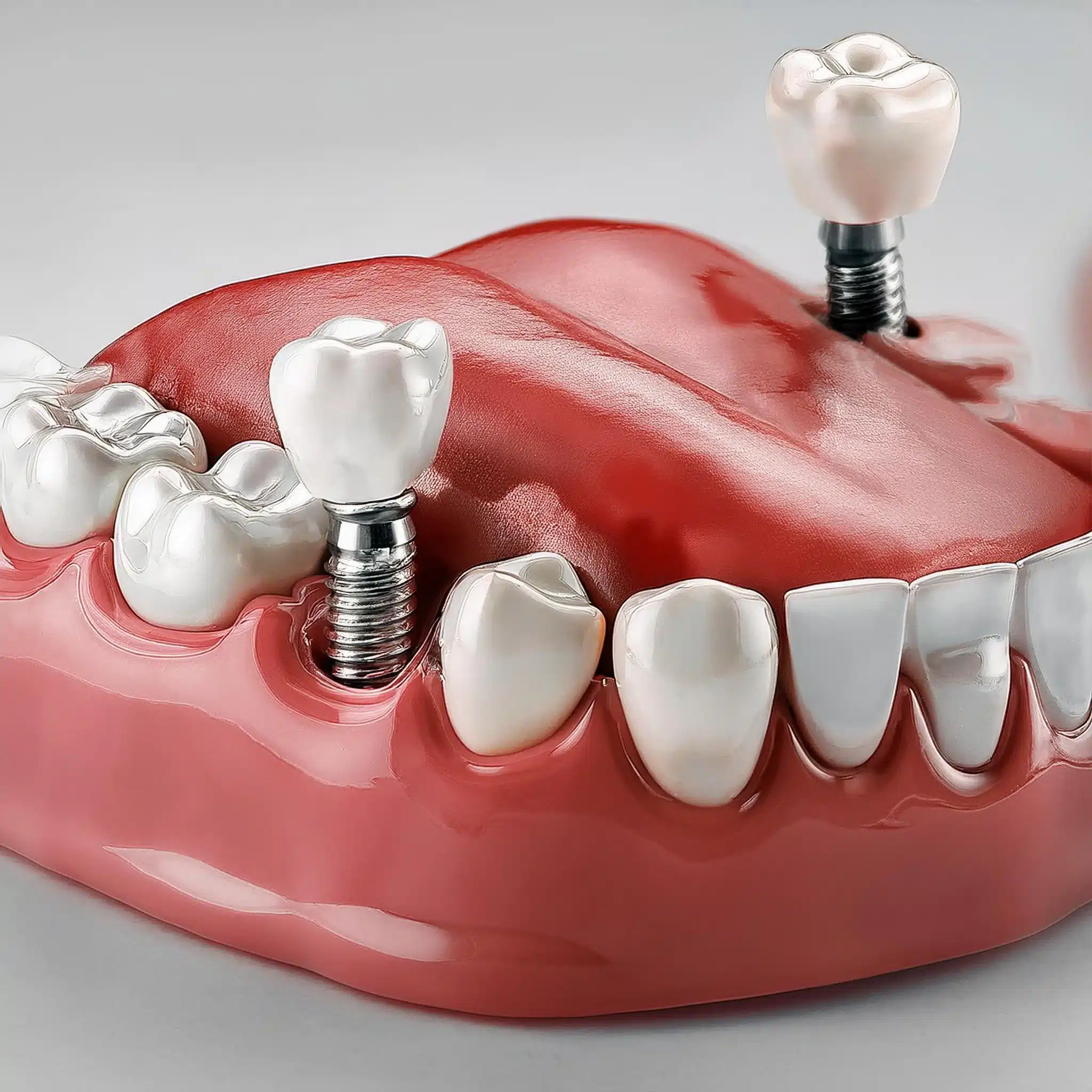
Factors Increasing the Risk of Complications
Understanding the factors that increase the risk of complications in dental implants is crucial for both patients and dental professionals.
These factors can significantly impact the success rate and longevity of the implants.
Fumer
Smoking is a well-documented risk factor that can adversely affect the success of dental implants.
Studies have shown that smokers have a higher rate of implant failure compared to non-smokers.
The presence of nicotine and other chemicals in tobacco can impair blood flow and healing, leading to complications such as infection and implant rejection (1).
It’s recommended that patients quit smoking before undergoing implant surgery to improve outcomes.
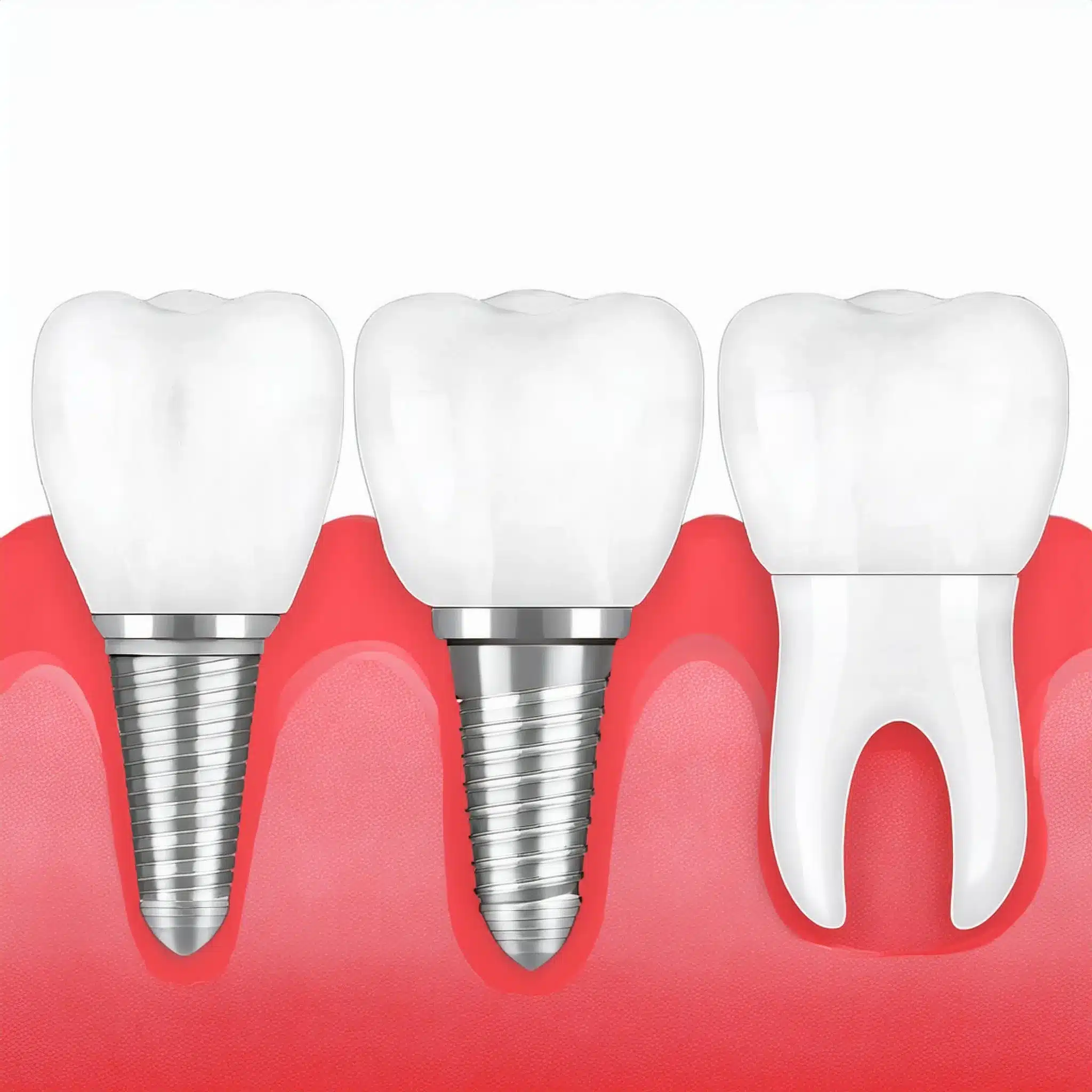
Mauvaise hygiène bucco-dentaire
Maintaining good oral hygiene is essential for the success of dental implants.
Poor oral hygiene can lead to the accumulation of plaque and bacteria around the implant site, increasing the risk of peri-implantitis and subsequent implant failure.
Regular brushing, flossing, and professional cleanings are vital to prevent these complications (4).
Pre-existing Health Conditions
Certain health conditions can also increase the risk of complications with dental implants.
Conditions such as diabetes, osteoporosis, and autoimmune diseases can affect bone healing and integration of the implant.
Patients with these conditions should work closely with their healthcare providers to manage their health and assess the suitability of dental implants (5).
Proper management of these conditions can help reduce the risk of complications and improve the success rate of implants.
How to Minimize the Risks of Dental Implants?
Minimizing the risks of dental implants involves planning and execution.
By taking certain precautions, patients can improve the success rate of their implants.
Pre-surgical Assessment and Planning
A thorough pre-surgical assessment is essential to identify the risk factors.
This includes assessing bone density and quality, which are critical for implant stability.
Advanced imaging like CT scans can provide detailed information of the jawbone structure and help tailor the surgical approach to each patient’s anatomy (5).
Proper planning will prevent nerve damage and sinus problems.
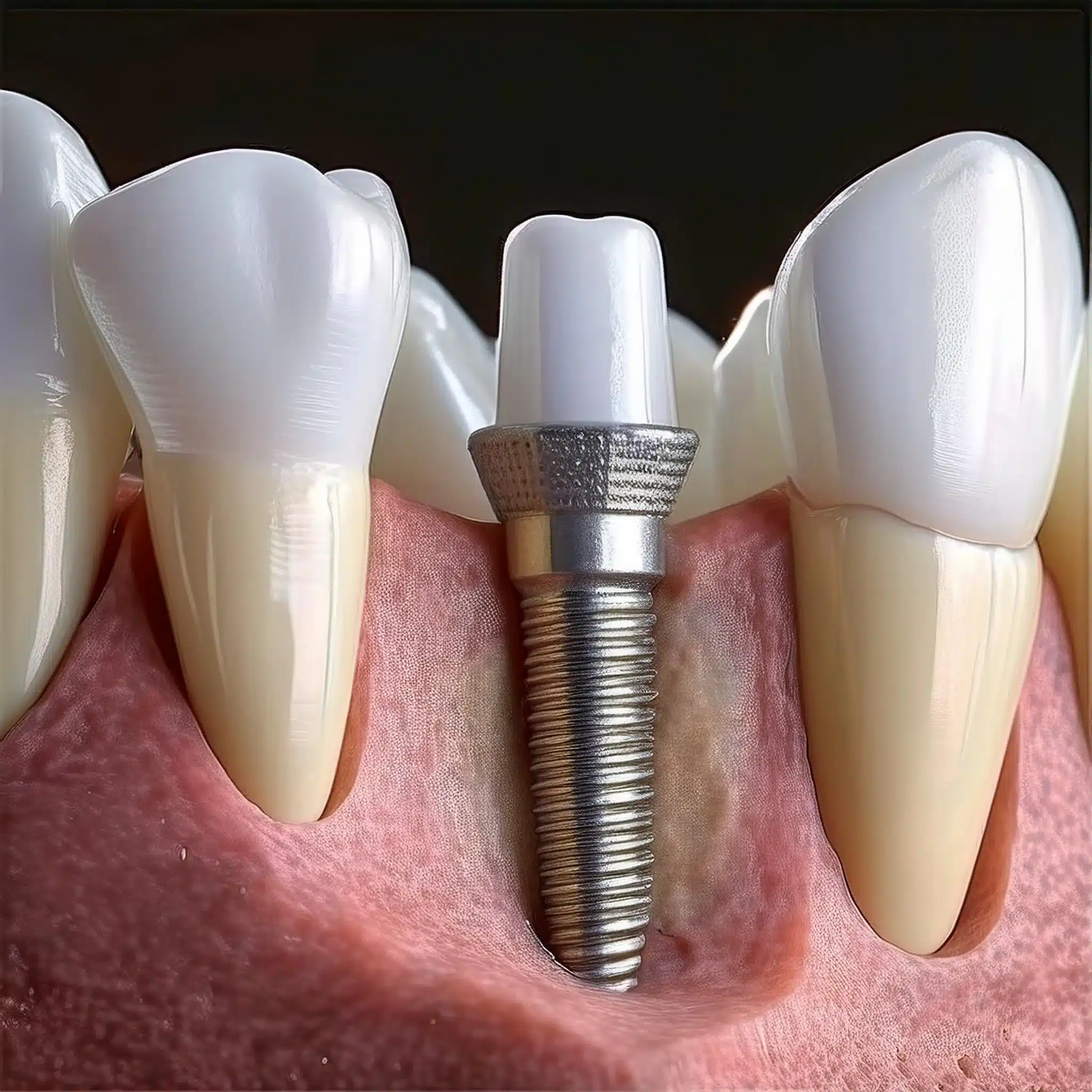
Choose an Experienced Dental Surgeon
Dental implant surgery expertise plays a big role in the success of the implant procedure.
Experienced surgeons can handle complex cases better and can anticipate potential complications.
They also use advanced techniques and materials that improve implant dentistry integration and longevity (4).
Patients should research and choose a surgeon with implantology experience.
Post-surgical Care and Maintenance
Post-surgical care is crucial for long-term success of dental implants.
Patients should follow their surgeon’s instructions, which usually include good oral hygiene and regular follow-up appointments.
Antibiotics, as per some studies, can also help prevent infection during healing (3).
Following these guidelines will reduce the risk and promote successful implant integration.

Treatment for Dental Implant Complications
When complications with dental implants occur, timely and effective treatment is critical to restore oral health and prevent further problems. Here are the options:
Antibiotics for Infection
Antibiotics is key in managing infection around dental implants.
Depending on the severity of the infection, antibiotics like tetracycline and metronidazole may be prescribed to target specific bacteria (4).
These medications can be given locally or systemically to reduce bacterial load and inflammation.
But antibiotics should be used in conjunction with mechanical cleaning and good oral hygiene practices to ensure comprehensive treatment (2).
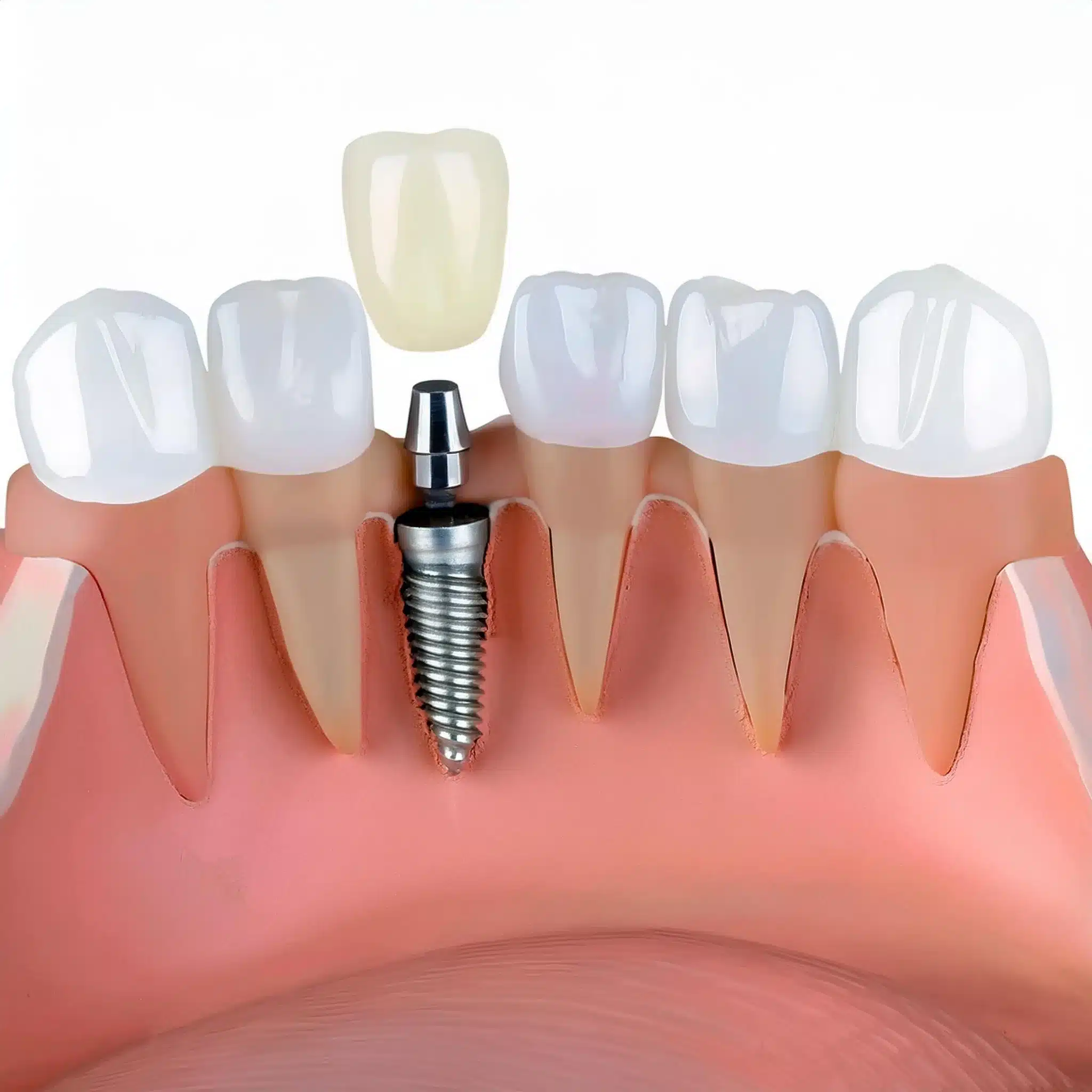
Surgical Intervention for Nerve Damage
If nerve damage occurs, surgical intervention may be needed to alleviate symptoms and prevent permanent damage.
This can involve repositioning the implant or removing it if it’s impinging on the nerve.
Early intervention is key to preserving nerve function and comfort (3).
Patients with persistent numbness or tingling should see their dentist to determine the next step.
Replacement of Failed Implant
If an implant fails, replacement may be considered once the underlying issues are addressed.
This usually involves removing the failed implant, allowing the site to heal, and then placing a new implant.
Bone quality and patient health will be re-assessed to improve chances of success with the new implant (1).
Bone grafting may be done if there’s not enough bone to support a new implant.
Regular follow-up and adherence to postoperative care are crucial to ensuring the longevity of the new implant.
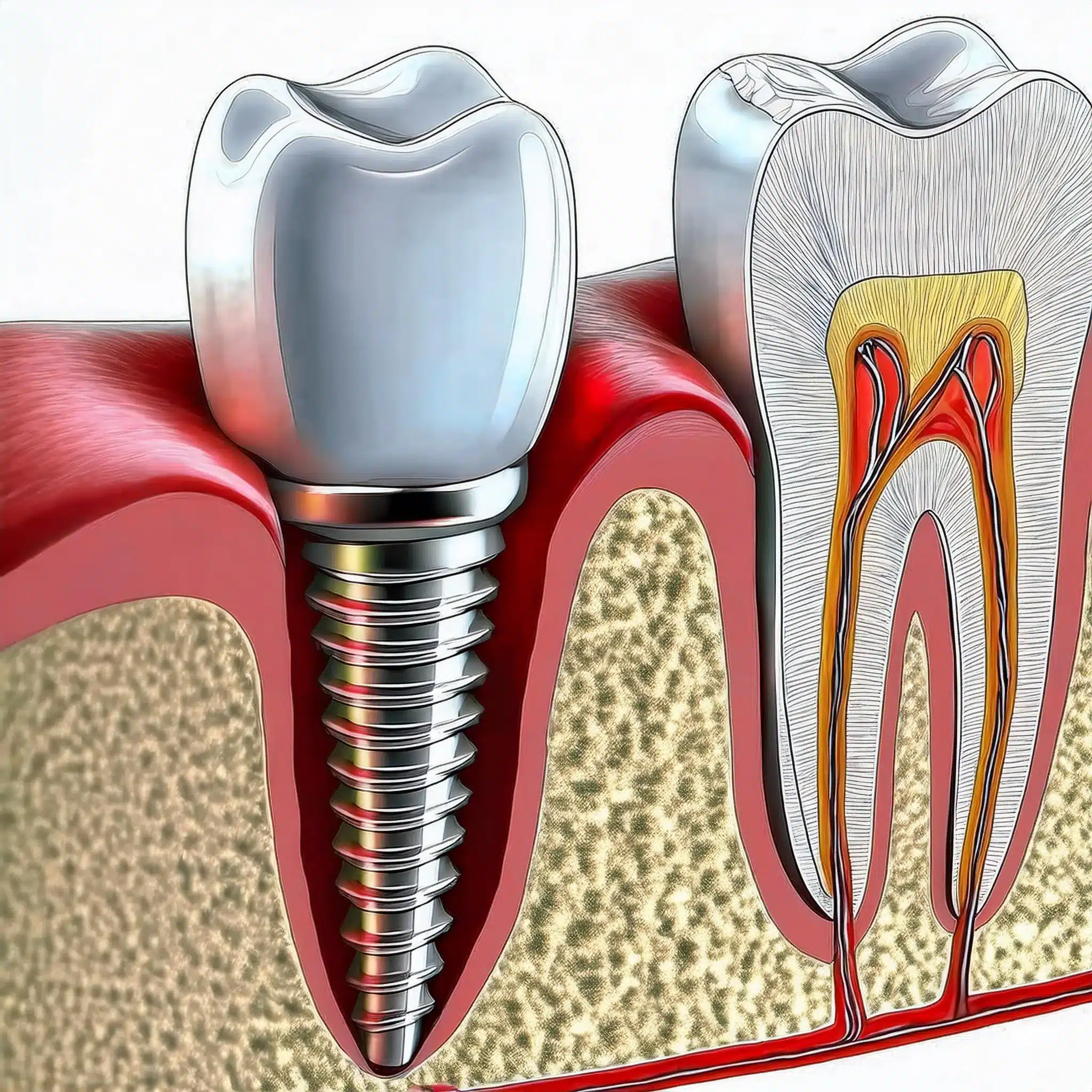
Conclusion et points clés à retenir
Principaux enseignements:
Informed decision-making: Patients should know the risks of infection, nerve damage, and implant failure, which occur at different rates depending on individual factors.
Risk Mitigation: Smoking and poor oral hygiene increase the risk of complications but can be managed with proper care and lifestyle changes.
Professional Guidance: Choosing an experienced dentist and following post-op instructions is crucial for implant success.
Conclusion :
In conclusion, while dental implants are a reliable solution for missing teeth, being proactive about the risks and managing them can lead to better outcomes and patient satisfaction.
FAQ
Références
(1) Albrektsson T, et al. Risks and complications associated with dental implant failure. J Prosthet Dent. 2020;124(3):345–353.
Article : Risks and complications associated with dental implant failure
(2) Goodacre CJ, et al. Risk of complications associated with dental implants and implant surgery. J Prosthet Dent. 2004;92(4):351-358.
Article : Risk of complication associated with dental implants and implant surgery
(3) Esposito M, et al. Interventions for replacing missing teeth: antibiotics at dental implant placement to prevent complications. Cochrane Database Syst Rev. 2013;(7):CD004152.
(4) Moy PK, et al., Complications of dental implants: identification, frequency, and associated risk factors. Int J Oral Maxillofac Implants. 2005;20(4):569–579.
Article : Complications of dental implants: identification, frequency, and associated risk factors
(5) Guglielmotti MB, et al., Recent development of dental implant materials, synthesis process, and their clinical implications. Mater Sci Eng C Mater Biol Appl. 2023;135:112739.
Article : Recent development of dental implant materials, synthesis process, and their clinical implications
